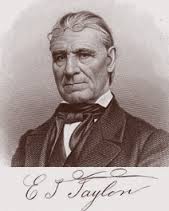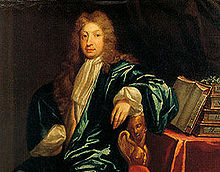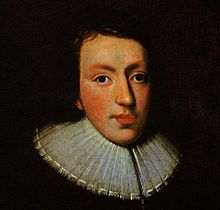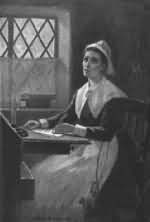The Reformation of the 16th century was a movement within Western Christendom which led to a breach between the Roman Catholic Church and the reformers whose beliefs and practices came to be called Protestantism. The invention of printing by Johann Gutenberg provided a powerful instrument for the spread of learning and Reformation ideas. The Renaissance popes and clergy were notoriously worldly and there was an increased disparity among the people’s expectations and the church’s ability to satisfy spiritual needs. The great masses of people were restless and dissatisfied while some turned to mysticism and inward religion.
The English Reformation Movement occurred as a direct result of King Henry VIII’s efforts to divorce his wife Catherine of Aragon and marry his lady love Anne Boleyn. But the laws of the Roman Catholic Church did not allow any individual to divorce his or her spouse and one couldn’t marry again if the spouse was living. So they cut off from the church and formed their own where King Henry’s marriage was annulled.
The seventeenth century can be divided into two periods the Puritan Age or the Age of Milton. The word puritan was first coined as a mocking term for those who advocated more purity in worship and doctrine. In modern times the word is often used to mean ‘against pleasure’. After the Restoration of 1660 almost all puritan clergy left the Church of England and some became non-conformist ministers. This age was the noblest representative of the Puritan spirit. The Puritan Movement in literature can be considered as the second and the greater Renaissance marked by the rebirth and the moral nature of man and the intellectual awakening of Europe in the fifteen and sixteen centuries. The movement stood for liberty of the people from the shackles of the despotic ruler as well as the introduction of morality and high ideals in politics. Therefore it had two objects- personal righteousness and civil and religious liberty. It aimed at making men honest and free.
Puritans disagreed with the practice of using metaphor and verbal flourishes in speech and writing, therefore the Puritan movement was one for very literal expression and teaching. But in due course of time creative expression arose and many poets contributed to Literature
John Milton
Was an English poet, polemicist, man of letters and a civil servant for the Commonwealth of England under Oliver Cromwell. He wrote at a time of religious flux (continuous succession of changes) and political upheaval and is known for his poem Paradise Lost which consists of 12 Volumes.
His poetry and prose reflect deep personal convictions, a passion for freedom and self determination and the urgent issues and political turbulence. He wrote in many languages like English, Latin, Greek and Italian and achieved international recognition.
On returning to England, where the Bishop’s War saw further armed conflict, he began to write prose tracts in episcopacy in the service of the Puritan and Parliamentary cause. His first foray into polemics was ‘Of Reformation’ touching Church Discipline in England, followed by ‘Of Prelatical Episcopacy’, the two defences of Smectymnuus and the Reason of Church Government Urged against Prelaty. Milton clung to the beliefs that had originally inspired him to write for the Commonwealth. In 1659 he published ‘A Treatise of Civil Power’, attacking the concept of a state dominated church. Milton wrote several proposals to retain a non-monarchical government against the wishes of parliament, soldiers and the people.
Milton’s first published poem was ‘On Shakespear’ in the year 1630, the anonymous edition of ‘Comus’ in 1637 and ‘Lycidas’ in 1638. The 1645 collection was his only poetry that saw print until ‘Paradise Lost” was printed in 1667.
The blank verse epic poem ‘Paradise Lost’ was composed by the blind and impoverished Milton. Being blind, he dictated his verse to a series of aides in his employ. It has been argued that the poem reflects his personal despair at the failure of the Revolution, yet affirms an ultimate optimism in human potential. He followed Paradise Lost with its sequel ‘Paradise Regained’. Just before his death in 1674 he supervised a second edition of Paradise Lost accompanied by an explanation of “why the poem rhymes not”.
Edward Taylor
He immigrated to America in 1662 in defiance of the restoration of the English Monarchy. A Harvard  educated minister he did not write poems for publications but as a private act to prepare Holy Communion. His poems were discovered in the early 20th century and were only published 1937. He is the only poet to have written in the metaphysical style. His most important poems were ‘Preparatory Meditations’, ‘God’s Determinations Touching His Elect and the Elects Combat in Their Conversion’ and ‘Coming up to God in Christ’. He is considered to be one of the greatest of the Puritan Poets.
educated minister he did not write poems for publications but as a private act to prepare Holy Communion. His poems were discovered in the early 20th century and were only published 1937. He is the only poet to have written in the metaphysical style. His most important poems were ‘Preparatory Meditations’, ‘God’s Determinations Touching His Elect and the Elects Combat in Their Conversion’ and ‘Coming up to God in Christ’. He is considered to be one of the greatest of the Puritan Poets.
In ‘Huswifery’ one of his best known poem, he speaks of the Christian faith in terms of a spinning wheel and its various components.
His poems were an expression of religious views, acquired during a strict upbringing and shaped in adulthood by Puritans. His poems contained content derived from the Puritan surroundings.
Anne Bradstreet
She was the first poet and female writer in the British North American colonies to be published. Her first volume of poetry was ‘The Tenth Muse Lately Sprung Up in America’ published in 1650. It received positive response from the old and new worlds. Her education gave her the advantage to write about politics, history, medicine and theology. She had a personal library which contained 800 books. But her house was burnt and most of the books were destroyed. This event inspired her to write a poem ‘Upon Burning of Our House’ in 1666.
Much of her writings were based on mere observations of the world around her, focussing heavily on domestic themes and religions. She received critical acceptance for her sequence of religious poems which she wrote for her family and was not published until the mid 19th century. Her work was deeply influenced by the poet Guillaume de Salluste Du Bartas.
She valued knowledge and intellect and was a free thinker. Some considered her as an early feminist. In her poem ‘To My Dear and Loving Husband’ she portrays symbolism and passion tied into one devout love letter. The main role for a women in the Puritan society was to be wives and mothers, provide the family with everyday needs like clothing, food, keep the household clean and teach the children how to live a Puritan life. Bradstreet’s works show that the role of a woman was to take care of their children. Many of her works were dedicated to her own children such as ‘Before the Birth of One of Her Children’ and ‘In Reference to Her Children’.
In Puritan society children were gifts from God and she believed that they are bound to her to make her one.
John Dryden
He was an English poet, literary critic and playwright who made Poet Laureate in 1668. He is seen as dominating literary life of Restoration England to such a point that the period came to be known in literary circles as the Age of Dryden. Walter Scott called him “Glorious John”.
-Daphne Pearl De Souza
TCE, 1414008

